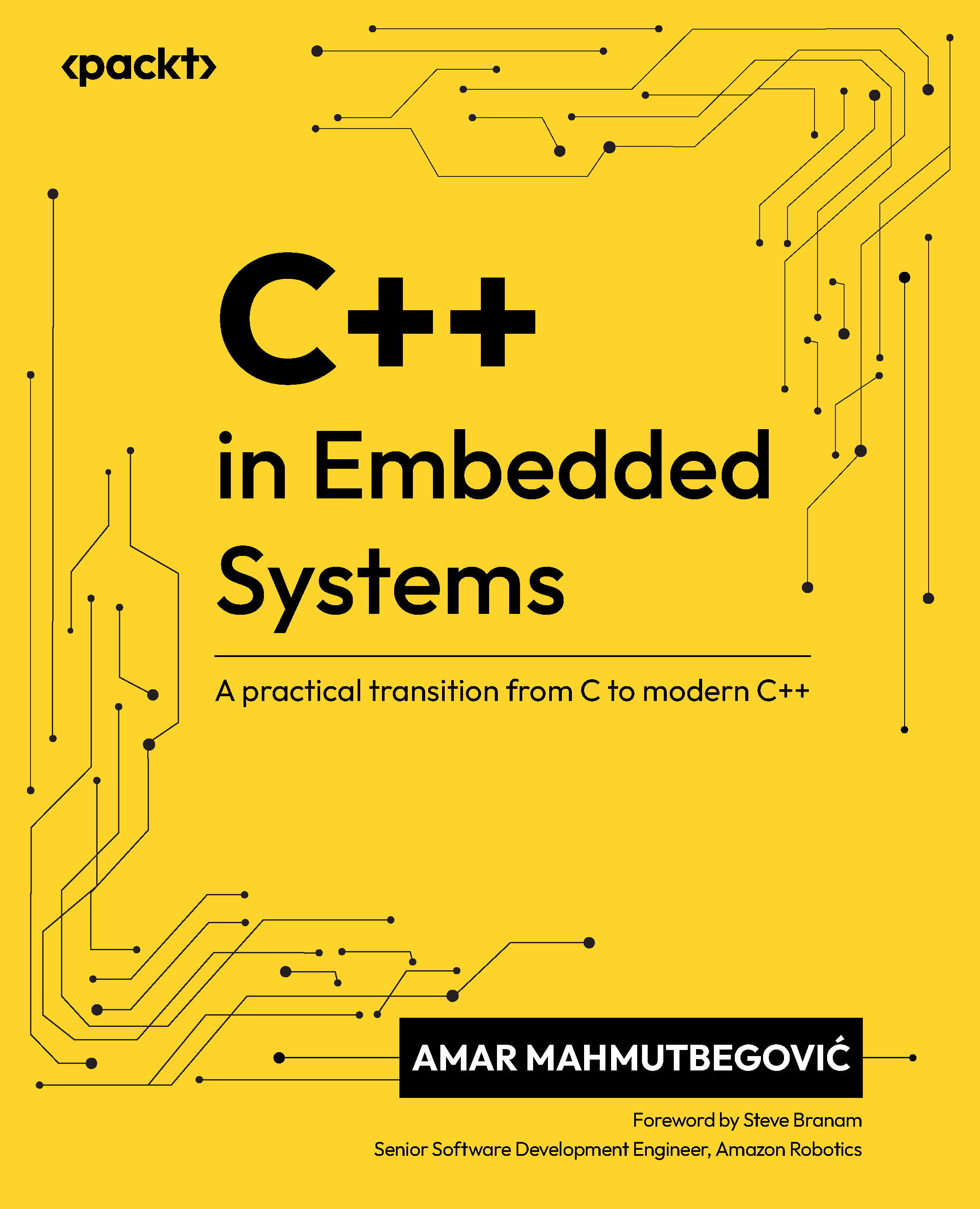Writing Expressive Code with Lambdas
Lambda expressions in C++ allow us to write short blocks of code that encapsulate functionality and capture the surrounding state into a callable object. We can use operator() on a callable object to execute the functionality implemented in it.
Common uses of lambdas include passing a function object (also called a functor – an object of a class that overrides operator()) to standard library algorithms, or any code expecting a function object, encapsulating small blocks of code that are often used only in a single function, and variable initialization. Their ability to localize functionality without separate functions or class methods modernized C++, making it possible to write cleaner, more expressive code.
In embedded development, lambdas are especially useful for defining actions in response to timer or external interrupts, scheduling tasks, and similar event-driven mechanisms. The goal of this chapter is to learn how to use lambda...



























































